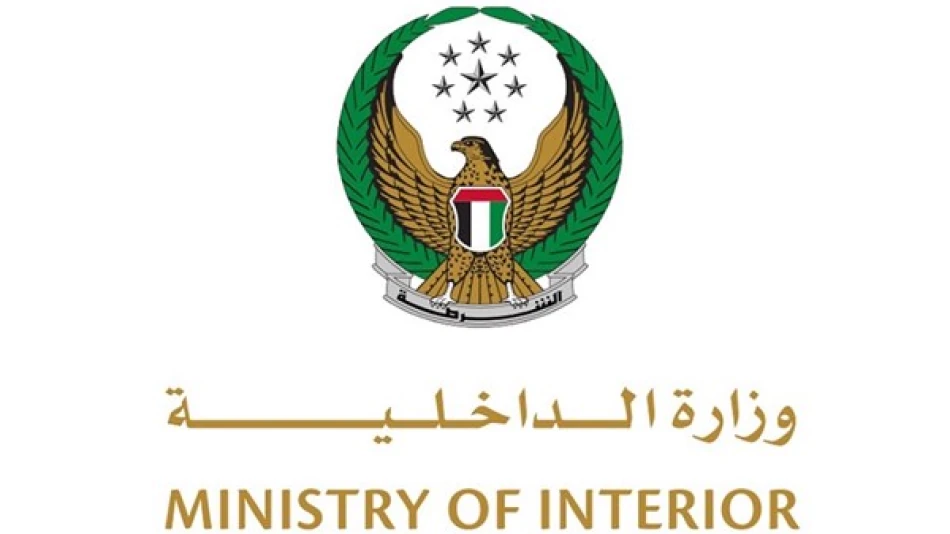
UAE-Backed International Security Alliance Seizes Over 822 Metric Tons of Illicit Drugs
Global Drug Bust Nets $2.9 Billion in Narcotics as UAE-Led Alliance Expands Reach
A massive international security operation coordinated by the UAE and 24 other nations has dismantled transnational drug trafficking networks worth $2.9 billion, marking the second major success for a relatively new global law enforcement alliance. The two-month operation seized over 822 tons of narcotics and arrested more than 12,500 suspects across air, sea, and land routes—demonstrating how Middle Eastern nations are increasingly positioning themselves as central players in international security frameworks.
Operation Scale Reflects Growing Criminal Networks
The sheer volume of seizures underscores the industrial scale of modern drug trafficking. At 822 tons, this operation captured more narcotics than many countries see in an entire year, highlighting how criminal organizations have evolved into sophisticated multinational enterprises that require equally coordinated responses.
The operation spanned multiple continents, involving European nations like Spain, France, Netherlands, Italy, and Belgium through Europol; Latin American countries including Colombia, Argentina, Brazil, and Peru via Ameripol; and strategic partners like Jordan, Nepal, and the Maldives. This geographic spread reflects trafficking routes that increasingly bypass traditional chokepoints, forcing law enforcement to think globally.
UAE's Strategic Security Diplomacy
The UAE's prominent role in this operation represents a broader shift in how Gulf states are projecting influence beyond their immediate region. Unlike the traditional approach of relying solely on economic partnerships, the Emirates is leveraging security cooperation to build strategic relationships across Europe, Latin America, and Asia.
This mirrors Singapore's successful model of becoming indispensable to international partners through specialized expertise—in Singapore's case, financial services and maritime security, and for the UAE, increasingly sophisticated law enforcement capabilities and geographic positioning between major drug production and consumption markets.
Intelligence Sharing as Soft Power
The operation's emphasis on intelligence gathering about new criminal networks and sharing expertise on smuggling methods positions participating nations as valuable long-term partners rather than just operational contributors. For the UAE, this creates lasting relationships with law enforcement agencies across 25 countries—relationships that extend far beyond drug interdiction into broader security cooperation.
International Security Alliance: France-UAE Model
The International Security Alliance, established in 2017 by France and the UAE, represents an interesting alternative to traditional multilateral organizations. Rather than the bureaucratic processes that often slow organizations like Interpol, this framework appears designed for rapid, targeted operations.
The alliance's focus on transnational organized crime with both high-level strategic cooperation and field-level operational participation suggests lessons learned from the limitations of existing international law enforcement structures. This hybrid approach—combining strategic planning with direct operational involvement—could serve as a model for addressing other global challenges that require both policy coordination and immediate action.
Market Implications and Future Outlook
For drug markets, operations of this scale typically create short-term supply disruptions and price volatility, but also accelerate innovation in trafficking methods. Criminal organizations historically respond to major busts by diversifying routes, adopting new technologies, and shifting toward synthetic drugs that are harder to detect.
From a geopolitical investment perspective, the UAE's growing role in international security cooperation strengthens its position as a stable, reliable partner for Western nations seeking alternatives to traditional regional powers. This security diplomacy complements the Emirates' broader strategy of economic diversification and positions it favorably for future defense and technology partnerships.
The success of this operation likely ensures continued expansion of the International Security Alliance, potentially drawing in additional nations seeking alternatives to slower-moving traditional multilateral frameworks. For countries balancing relationships between major powers, joining security-focused coalitions led by middle powers like the UAE offers a path to meaningful international engagement without the political complications of aligning with larger geopolitical blocs.
Most Viewed News

 Layla Al Mansoori
Layla Al Mansoori






